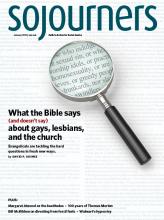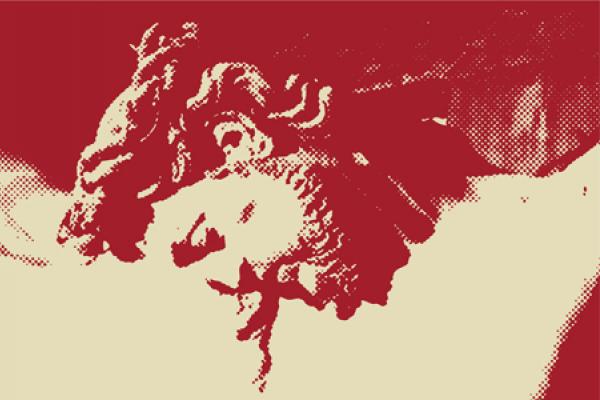ORTHODOXY AND orthopraxy—strange theological words from Sojourners’ past. But I was recently thinking back to the theology with which Sojourners began—43 years ago—and how it is still so central and fundamental to me today.
I remember the word that we so often used back in our formative days: “and.” As young Christians, we said our fledgling little movement was committed to evangelism and social justice, prayer and peacemaking, spirituality and politics, personal and public transformation, contemplation and activism, real salvation and real social change, orthodoxy and orthopraxy—which means starting with a biblical and Christ-centered personal faith and then living and practicing that faith in the world—in ways that changed both our own lives and public life. “And” was our big word in a church that was so divided and polarized. Another way we expressed it was calling for a “third way” beyond conservative and liberal, evangelical and mainline.
I want to refer back to some of the earliest expressions of our critique of both the conservative and liberal theologies of the time. Please forgive some of the passionate and movement language from the later 1960s and early ’70s (and the generic “male” language), but this was written when I was 23, in 1971! Yet the heart of the editorial commitment expressed so long ago remains true of Sojourners today:
We contend that the new vision that is necessary is to be found in radical Christian faith that is grounded in commitment to Jesus Christ. ... The offense of established religion is the proclamation and practice of a caricature of Christianity so enculturated, domesticated, and lifeless that our generation easily and naturally rejects it as ethically insensitive, hypocritical, and irrelevant to the needs of our times.
Read the Full Article

